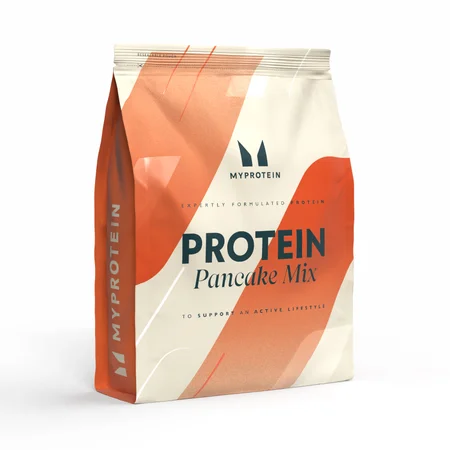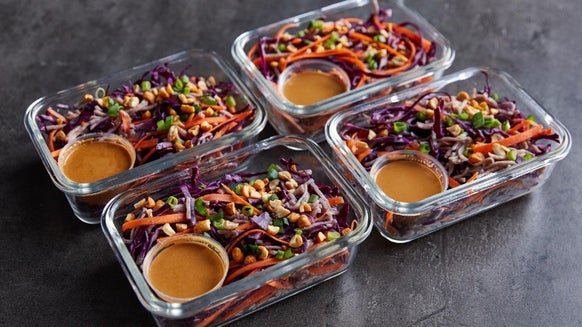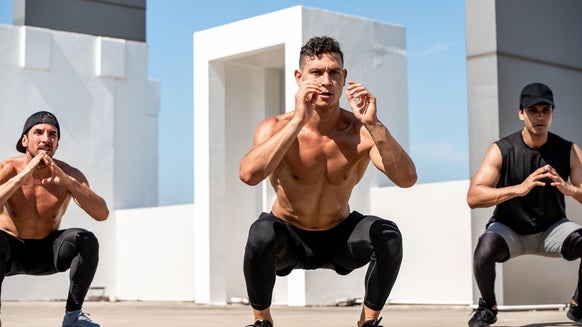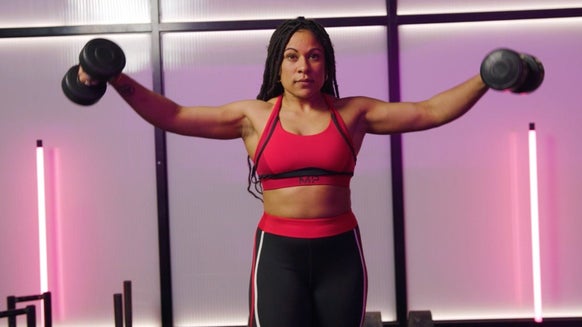How Protein Works

- What is Protein?
- What are the Benefits of Protein & How Does it Work?
- How much Protein do you Need?
- How to Increase Protein Intake

What is Protein?
Protein is one of the three macronutrients we get from food, along with carbohydrates and fat. Macronutrients contribute energy in the form of calories - fat contains 9 calories per gram, while carbs and protein each contain 4 calories per gram.
Protein does more than just provide us with energy though, it also helps repair and grow our body’s tissues, metabolic reactions, and daily functioning of our body’s systems.
Proteins are chains made up of smaller building blocks called amino acids. The types of amino acids within a specific protein dictate its form and function. Protein is found in both animal and plant foods, though in highest concentration in animal protein sources like meats, poultry, fish, eggs, and milk. You can also get protein in plant-based foods like dried beans and peas, nuts, soy, and seeds.
What are the Benefits of Protein and How Does it Work?
1. Growth and repair of lean muscle tissue
The primary benefit of protein when it comes to performance is the anabolic process of building muscle. Our muscles are always in a state of flux, breaking apart (muscle protein breakdown, or MPB) and rebuilding (or muscle protein synthesis, MPS). The balance between breakdown and synthesis dictates whether muscle tissue will be gained, lost, or balanced.
Resistance training pushes our muscles to the limit, creating damage in the form of small tears in the muscle tissue. These tears need to be repaired by amino acids (protein building blocks), which help lead to growth of the muscle over time.
2. Improves body composition
Body composition is based on the balance between fat mass and lean mass (muscle). Not only is protein key for building lean mass, it’s also essential during periods of weight loss. To lose weight, you have to burn more calories than you’re eating - which makes your body burn stored energy for fuel.
Consuming protein to protect your muscles while still in a calorie deficit can help to target fat loss and improve body composition over time.
3. Supports overall health
Protein has a number of important benefits in the body including the manufacturing of hormones, enzymes, messengers and immune-system components, as well as playing the main structural process of every muscle fibre.
Protein also works to support gastrointestinal health. Protein increases glutamine intake which is shown to develop overall gut function as well as supporting the immune system.
How Much Protein Do You Need?
Healthy individuals need between 0.8-1.2g of protein per kg body weight per day for maintenance. If your goals are to increase mass and see other benefits, you need between 1.2 - 2.2 grams of protein per kilogram of bodyweight daily to encourage muscle growth.
Women naturally have more fat mass than lean mass and require less protein overall than men. On average, women who are at a healthy weight should aim for 1.2g/kg per day and men should aim for 1.4g/kg per day.
How To Increase Protein Intake
You can increase your protein intake through your diet using the high protein foods in the list below, or by supplementing (adding to) your diet with protein shakes.
| Classification | Food | Grams protein per 100g food |
| Meat | Chicken Breast | 31g |
| Turkey Breast | 30g | |
| Pork Chops | 30g | |
| Lamb Chops | 26g | |
| Ground beef | 26g | |
| Fish | Salmon | 22g |
| Sardines | 25g | |
| Tuna | 24g | |
| Mackerel | 26g | |
| Nuts & Seeds | Chia Seeds | 16g |
| Peanuts | 24g | |
| Almonds | 21g | |
| Eggs | Whole eggs | 12g |
| Egg whites | 11g | |
| Dairy Products | Skim milk | 3.5g |
| Greek yogurt | 6g | |
| Cheddar cheese | 25g | |
| Soy Products | Soy beans | 11g |
| Soy milk | 4g | |
| Tofu | 16g |
There are a variety of protein shakes available to help increase your protein intake between meals.
Whey protein shakes are the most widely available, and range in different levels of concentration/processing from isolate, hydrolysate, and concentrate. There are specific protein powders for those looking to lose weight or those who want to gain, and there are also vegan options like soy or plant based blend proteins.
Take Home Message
READ THESE NEXT:

Claire is a Registered Dietitian through the Academy of Nutrition and Dietetics and a board-certified Health and Wellness Coach through the International Consortium for Health and Wellness Coaching. She has a Bachelor of Science in Biology and a Master’s degree in Clinical Dietetics and Nutrition from the University of Pittsburgh.
Talking and writing about food and fitness is at the heart of Claire’s ethos as she loves to use her experience to help others meet their health and wellness goals.
Claire is also a certified indoor cycling instructor and loves the mental and physical boost she gets from regular runs and yoga classes. When she’s not keeping fit herself, she’s cheering on her hometown’s sports teams in Pittsburgh, or cooking for her family in the kitchen.
Find out more about Claire’s experience here.






